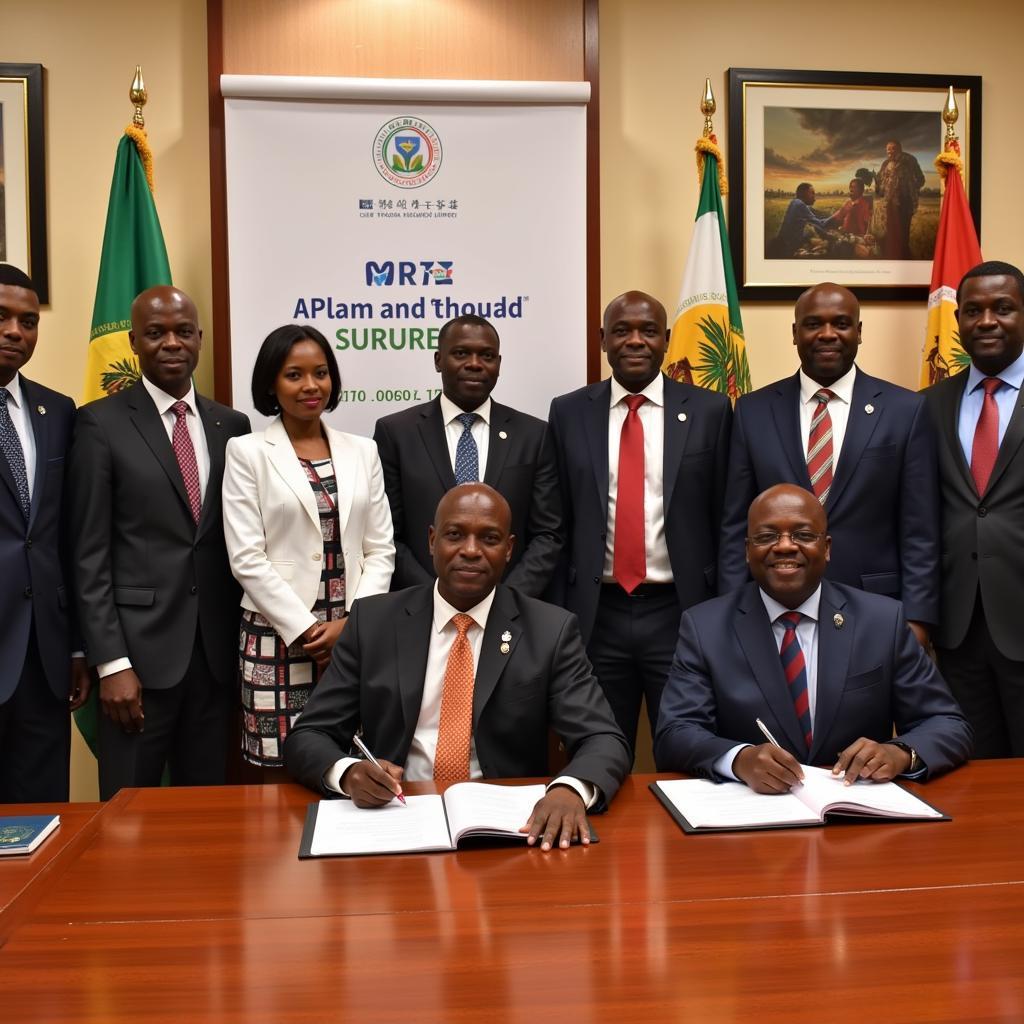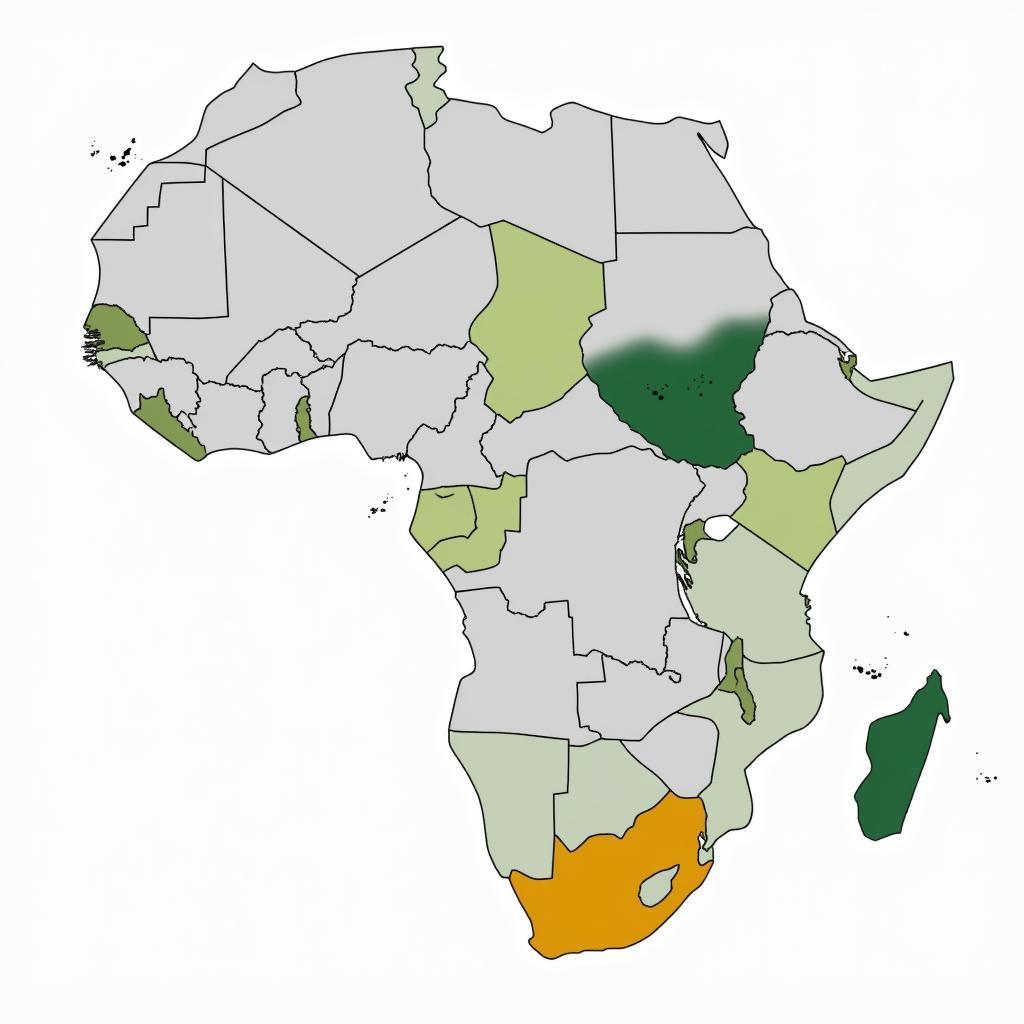African Free Trade Zone 2018: A New Era for African Economies
The African free trade zone, officially launched in 2018, marked a significant milestone in the continent’s economic integration. This ambitious project, known as the African Continental Free Trade Area (AfCFTA), aims to create a single market for goods and services, facilitating the movement of capital and people across African borders. This initiative has the potential to reshape the economic landscape of Africa and unlock unprecedented growth opportunities.
Understanding the African Free Trade Zone’s Origins
The idea of a unified African market has been a long-standing aspiration, dating back to the formation of the Organization of African Unity (OAU) in 1963. The vision was to foster economic cooperation and reduce reliance on external markets. However, progress towards this goal was slow, hindered by political instability, economic disparities, and infrastructural challenges. The African Union (AU), which succeeded the OAU in 2002, revived the dream with the launch of the AfCFTA negotiations in 2012. These negotiations culminated in the signing of the AfCFTA agreement in Kigali, Rwanda, in March 2018, marking a pivotal moment in the journey towards continental integration. The agreement entered into force on May 30, 2019, after the minimum 22 countries ratified it.
 African Free Trade Zone Agreement Signing Ceremony
African Free Trade Zone Agreement Signing Ceremony
Key Objectives and Benefits of the African Free Trade Zone
The African free trade zone seeks to achieve several key objectives, including boosting intra-African trade, promoting industrial development, creating jobs, and enhancing competitiveness. By eliminating tariffs and non-tariff barriers, the AfCFTA aims to increase trade within Africa, which currently lags behind other regions. This expansion of intra-African trade is expected to stimulate industrial growth, diversify economies, and create much-needed employment opportunities, particularly for the continent’s burgeoning youth population. Furthermore, the AfCFTA is projected to enhance Africa’s competitiveness in the global market by fostering greater economies of scale and attracting foreign direct investment.
How Will the African Free Trade Zone Impact Businesses?
The AfCFTA presents significant opportunities for businesses across various sectors. It offers access to a larger market, reduced trading costs, and simplified customs procedures. For small and medium-sized enterprises (SMEs), which form the backbone of many African economies, the AfCFTA can open doors to new markets and facilitate their integration into regional and global value chains.
 African Entrepreneurs Trading Goods Across Borders
African Entrepreneurs Trading Goods Across Borders
Challenges and Opportunities for the African Continental Free Trade Area (AfCFTA)
While the AfCFTA holds immense promise, its implementation faces several challenges, including addressing infrastructural deficits, harmonizing regulations, and building institutional capacity. Improving infrastructure, particularly transport and logistics, is crucial for facilitating seamless trade across the continent. Harmonizing regulations and standards will be essential to ensure fair competition and prevent technical barriers to trade. Building institutional capacity is also vital for effective implementation and monitoring of the agreement. Despite these challenges, the AfCFTA represents a historic opportunity for Africa to transform its economic landscape and unlock its full potential. Successfully navigating these challenges will require strong political will, effective coordination among member states, and active engagement with the private sector. Learn more about the African Continental Free Trade Area (AfCFTA) at african continental free trade area afcfta.
 Map of Africa Highlighting AfCFTA Member States
Map of Africa Highlighting AfCFTA Member States
Conclusion
The African free trade zone established in 2018, embodied by the AfCFTA, signifies a bold step towards a more integrated and prosperous Africa. By fostering greater intra-African trade and promoting industrial development, the AfCFTA has the potential to unlock significant economic benefits for the continent. While challenges remain, the collective commitment of African nations to this ambitious project offers a beacon of hope for a brighter economic future. Visit our page on african beauty by diamond to learn more about the continent’s rich culture.
FAQ
- What is the African Continental Free Trade Area (AfCFTA)?
- When did the African free trade zone officially launch?
- What are the main objectives of the AfCFTA?
- How will the AfCFTA benefit African businesses?
- What are the key challenges facing the implementation of the AfCFTA?
- How many countries have ratified the AfCFTA agreement?
- What is the expected impact of the AfCFTA on intra-African trade?
When you need assistance, contact us at Phone Number: +255768904061, Email: kaka.mag@gmail.com, or visit us at Mbarali DC Mawindi, Kangaga, Tanzania. Our customer service team is available 24/7.

